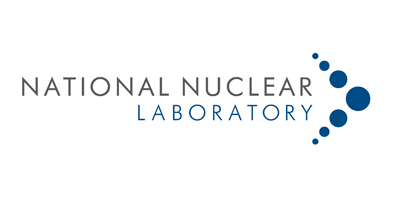The Waste Behaviour HALES team, with particular expertise in the behaviour of nitric acid based Highly Active Liquor (HAL), is primarily based in the NNL Central Laboratory on the Sellafield site. The team which consists of predominantly chemists, undertakes a full range of work from desk-based studies to hands-on practical inactive laboratory work which includes running small scale rigs.
We have a core capability that can be applied to the treatment of complex liquors with varying solids content. This includes development of Post Operational Clean Out (POCO) strategies such as the POCO strategy for the Highly Active Storage Tanks (HASTs) which will involve the use of reagents to dissolve the solids within the tanks. We also provide day to day chemistry support to help maintain continued operation of Sellafield High Level Waste Plant (HLWP) facilities and assist in planning and strategy development via longer-term programmes of work.
Customers: Sellafield Limited, BEIS.
Skills:
- Development and provision of (inactive) simulants representative of complex HAL, with the facility to provide up to 4 litre batches for experimental work.
- Advise large scale simulant manufacturers on how to provide representative liquors, at the m3 scale, for use on development rigs. This can include advice on how to simplify simulants for large scale rigs without affecting the validity of the simulant.
- Support to programmes of laboratory and rig hall based experimental work to underpin plant operations and related safety case documentation. Examples include reduced pressure evaporation rig operation, crystallisation/dissolution point measurement and chemical dissolution reagent assessment.
- Analysis and interpretation of liquor/solids properties such as yield stress, particle size, solids settling, density and elemental analysis, including support to modelling work carried out by other teams via the provision of empirical data.
- Development of complex spreadsheet tools to support ongoing plant operations and provide information regarding current and historic liquor inventories.
- Strategic support and flow-sheet development regarding challenges such as treatment of modified waste streams and preparation for future clean out and decommissioning of active plant. This includes development of new wash reagents to underpin plant Post Operational Clean Out (POCO) strategies.
- Consideration of the effect of radiation and active environments on the results of inactive experiments and assessments, with regular collaboration with relevant experts inside and outside of NNL to assess the impact and carry out confirmatory active experiments where required.
Facilities: Inactive laboratory facilities including:
- 4 litre simulant preparation facility.
- Small scale experimental evaporator rig.
- Kinexus rheometer.
- Long term storage of samples at temperatures up to 50 °C.
Collaborations: The team works closely with other teams within NNL including the Vitrification team, who provide support to the Sellafield Ltd Vitrification plant that processes HAL waste.
